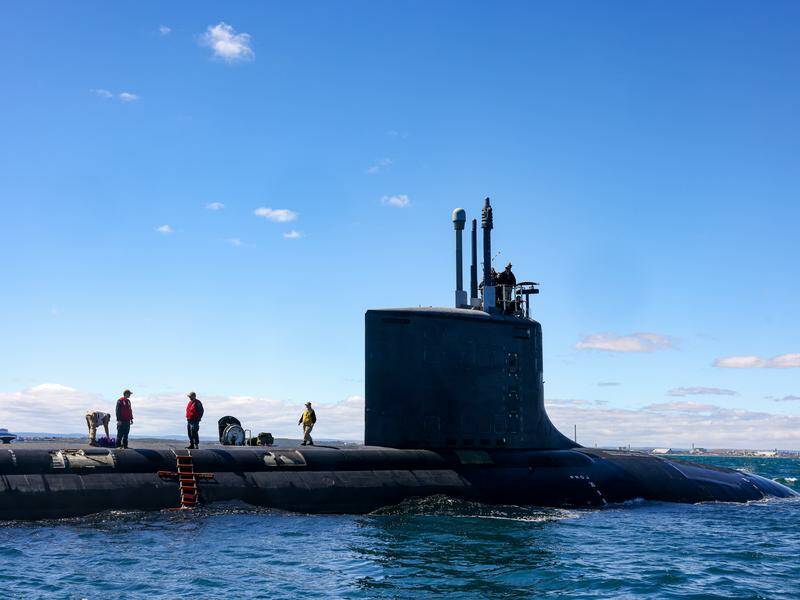
An adviser to the Biden administration has underscored the importance of maintaining the AUKUS project, which aims to provide Australia with nuclear-powered submarines, despite a comprehensive review being conducted by the Pentagon. Abraham Denmark, who co-authored a recent report for the Centre for Strategic and International Studies, warned that cancelling AUKUS could significantly diminish the United States’ capabilities in the Indo-Pacific region.
Denmark, alongside former State Department official Charles Edel, expressed concerns about the potential implications if AUKUS were to be abandoned. The report highlights that such a move would not only undermine deterrence but also enhance the credibility of narratives from Beijing and Moscow that question American reliability.
The report acknowledges the necessity for a thorough review of AUKUS initiated during the previous Trump administration. It emphasizes that the project is vital for US credibility in the Indo-Pacific. Should AUKUS falter, the authors argue, the US would face a strategic setback, losing ground in its efforts to counteract China’s ambitions in the region.
Challenges Identified in AUKUS Implementation
Denmark and Edel’s analysis outlines several pressing challenges that must be addressed for AUKUS to succeed. One key issue is the lagging production rates of US submarines, which raises questions about whether Australia could effectively deploy these submarines in any potential conflict while simultaneously straining US resources.
Financial implications are also significant; the project is projected to cost Australia approximately $240 billion (AUD 368 billion) over more than 30 years. This staggering figure reflects not only the financial commitment but also the strategic stakes involved.
Additionally, the report points to a shortage of skilled labor for submarine production in the US, Australia, and the UK, which could hinder progress. Practical issues, such as the slow establishment of “AUKUS visas” to facilitate personnel movement, are also highlighted as obstacles that need urgent attention.
The authors further critique the vague objectives associated with the second pillar of AUKUS, which focuses on collaboration in advanced weaponry. They call for a more defined approach to ensure that this aspect of the partnership contributes effectively to the overall strategic goals.
Strategic Imperative for AUKUS
Despite the array of challenges outlined in the report, Denmark and Edel assert that reinforcing AUKUS remains a “strategic imperative” for the United States. They argue that the partnership not only bolsters the US defense industrial base but also strengthens ties with key allies.
The report posits that successfully implementing AUKUS would send a powerful deterrent message to Beijing and contribute to stabilizing the Indo-Pacific region. The plans for AUKUS were first unveiled in 2021 under President Biden, aiming to enhance regional security in light of China’s rising influence.
The Pentagon’s review of AUKUS, which began in June 2023, is expected to assess the alignment of this collaboration with the broader objectives of the US defense strategy. Elbridge Colby, the Pentagon’s Under Secretary of Defense for Policy, is leading this review and has previously voiced concerns regarding the potential allocation of submarines to Australia at a critical time for US deterrence capabilities.
As discussions around AUKUS continue, bipartisan support for the initiative remains strong. Last month, leaders from both the Republican and Democratic parties emphasized their commitment to AUKUS during a congressional committee meeting focused on strategic competition with China.
In summary, while numerous challenges face the AUKUS partnership, the message from the Biden administration’s advisers is clear: ensuring the success of AUKUS is essential for maintaining US credibility and influence in the Indo-Pacific.






